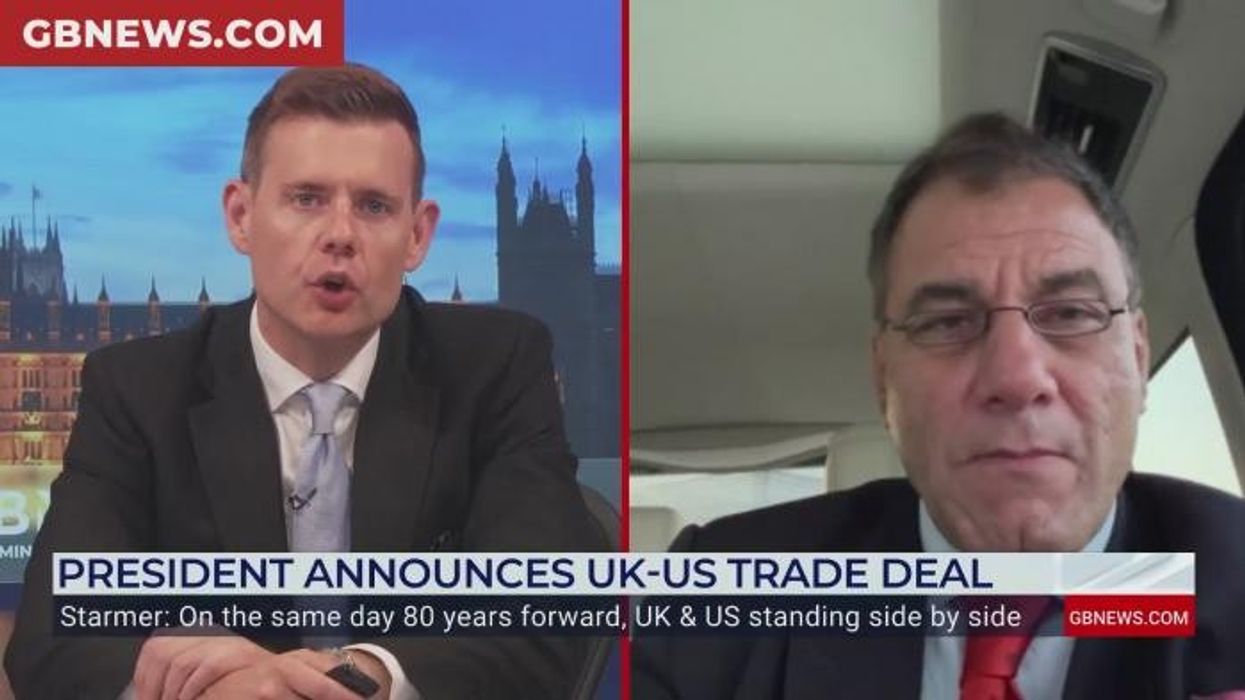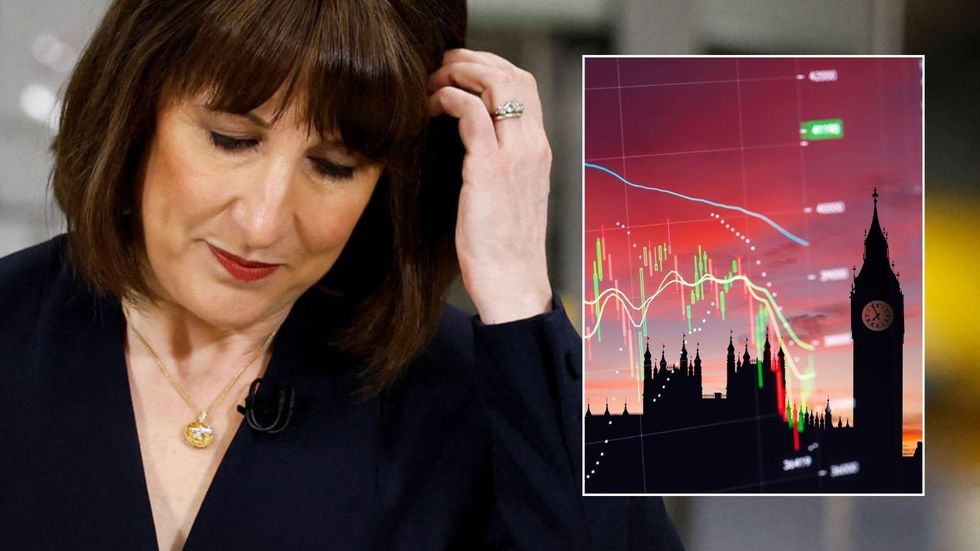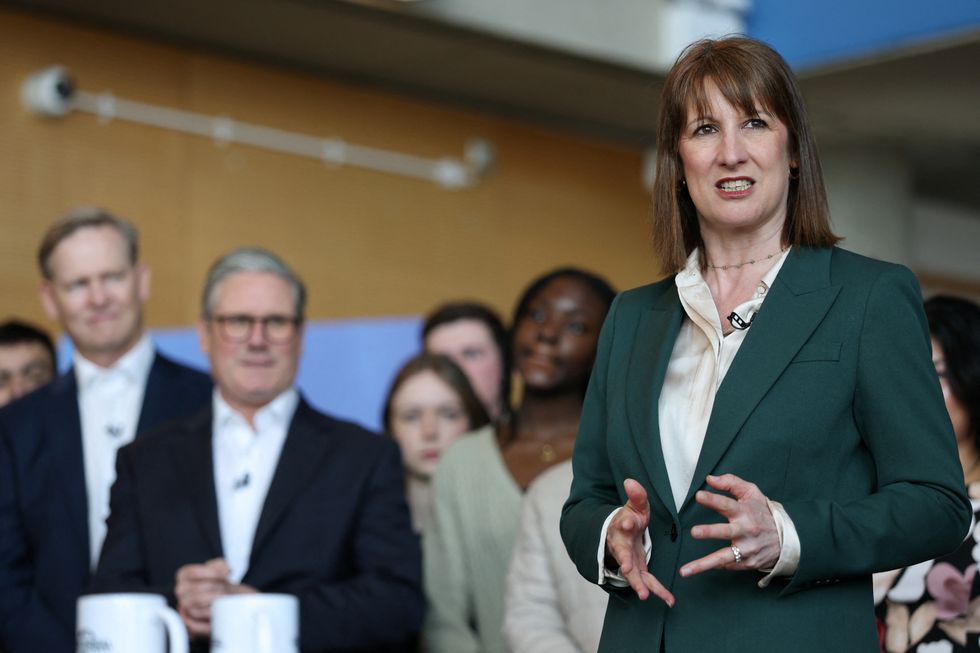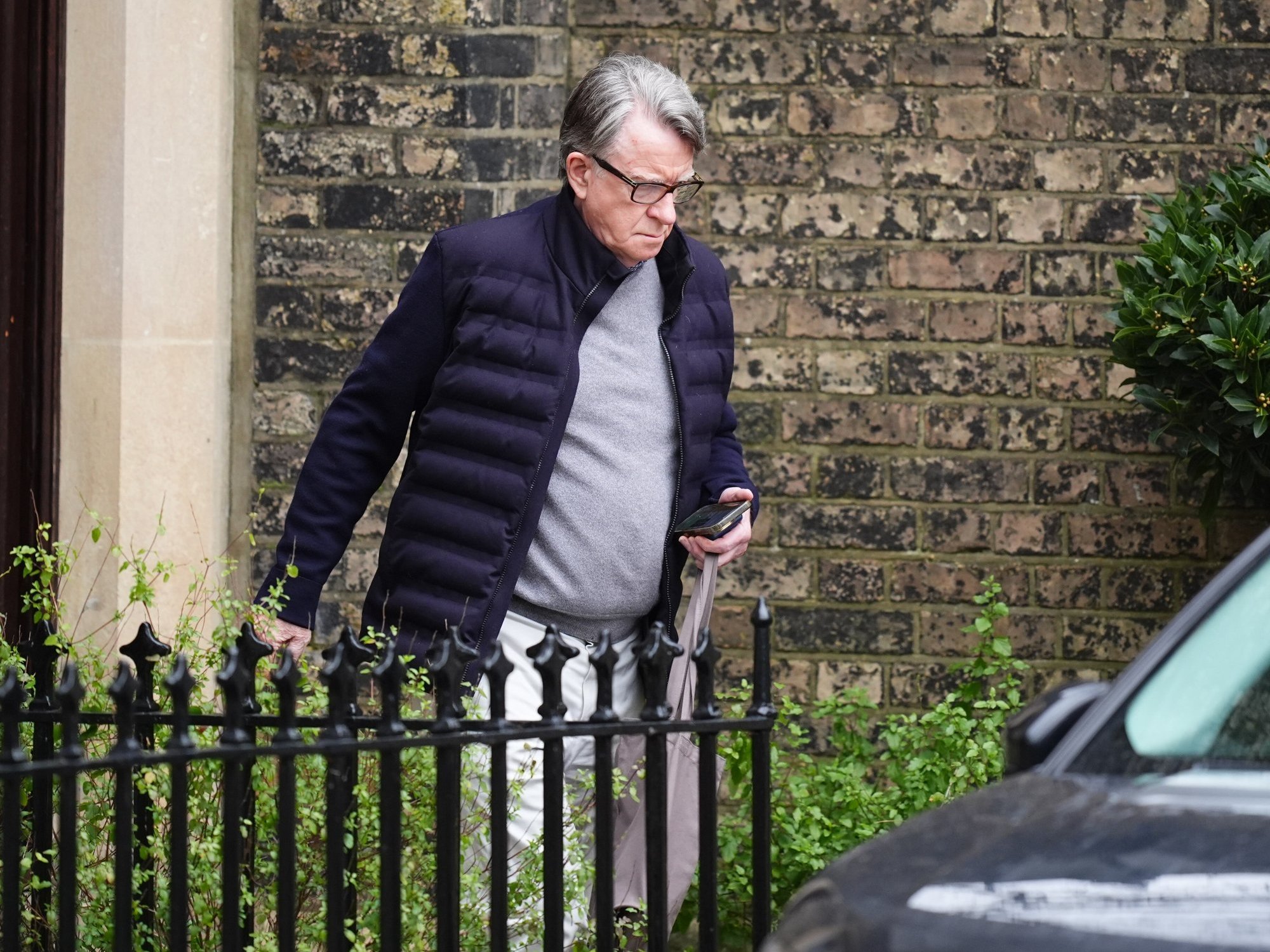Economy warning: UK unemployment rate jumps after Rachel Reeves's 'National Insurance rise'

Lord Bilamoria on Keir Starmer's trade deal with the US, and Donald Trump's impact on the world economy |
GB NEWS

Britain's unemployment rate is on the rise, according to the latest figures from the Office for National Statistics (ONS)
Don't Miss
Most Read
The unemployment rate in the UK has risen slightly as experts warn the impact of the "rise in employer National Insurance contributions" and President Donald Trump's tariffs are already coming into effect.
Unemployment jumped to 4.5 per cent in the three months to March, a slight hike from 4.4 per cent from the previous month, according to the Office for National Statistics (ONS).
Furthermore, the ONS reports that UK average regular earnings growth decreased to 5.6 per cent in the three months to March.
Earnings growth was 2.6 per cent higher after taking Consumer Prices Index (CPI) inflation into account, the Government body stated.

Analysts are blaming Rachel Reeves's decision to raise National Insurance for employers on the rising unemployment rate
| GETTYAnalysts are noting this uptake in unemployment comes following the recent hike in the National Insurance contribution rate for employers.
In April, the rate paid by businesses jumped to 15 per cent after Chancellor Rachel Reeves confirmed the tax raid last year, alongside an increase in the minimum wage.
Last week, Prime Minister Keir Starmer was able to remove tariffs imposed on UK steel and aluminium by the US, however sweeping 10 per cent tariffs on trade remain in place.
Professor Joe Nellis, an economic adviser to accountancy firm MHA, said: "The UK labour market continues to be tight, reflected by a period of relatively low unemployment and consistently high earnings growth — an earnings growth figure of 5.6 per pet cent means that wage rises stay considerably above inflation as demand for labour pushes wages up.
Do you have a money story you’d like to share? Get in touch by emailing money@gbnews.uk.

Unemployment woes are projected to continue for the UK
| GETTY"As a driver of inflation, this persistent high wage growth is something that the Bank of England has their eye on.
"If it continues, it will be a sore spot for an already divided Monetary Policy Committee (MPC) as it explores further interest rates cuts this year. Nonetheless, the market is likely to shift under increased pressures as the year progresses.
"Job vacancies have been decreasing since mid-2022 and have once again fallen for the quarter February to April 2025 — compared to February to April 2024, there are 131,000 (14.7 per cent) less vacancies in the UK"
According to Nellis, the tax policies introduced by the Chancellor appear to be impacting the ability of businesses to hire.
He added: "This is compounded by the impact of rising employment costs — rise in employer NICs and the National Living Wage — and ongoing trade uncertainty, which will both apply a downwards push on business confidence and recruitment.
"The Prime Minister may have won some small tariff victories on specific goods, but we are certainly not out of the woods when it comes to protecting UK exports."
LATEST DEVELOPMENTS:
 Rachel Reeves has been dealt a blow to her fiscal plans | PA
Rachel Reeves has been dealt a blow to her fiscal plans | PAKevin Brown, a savings specialist at Scottish Friendly, warned that the full impact of recent tax raids are yet to be felt by businesses and the public
Brown explained: "The data does not yet capture the impact of either the National Insurance rises and living wage increase, which started in April, nor the drama created by US tariffs and their impact here in the UK.
"There are signs that wage growth will slow further from here. Business confidence is at its lowest level since the Covid pandemic. Private sector headcount growth has slowed to a snail’s pace, while headcount is expected to fall among public sector workers.
"Equally, ONS data shows household disposable income remains stagnant since 2008 as cost of living increases have continued to all but wipe out any pay rises. Against this backdrop, households are unlikely to be feeling much better off in spite of some decent wage hikes."










